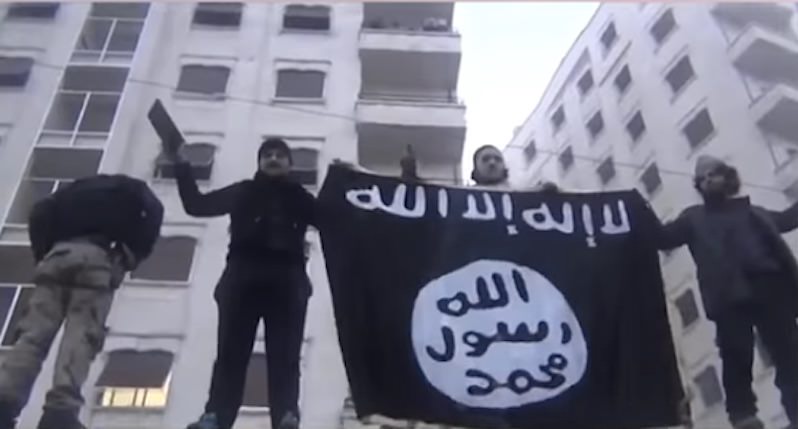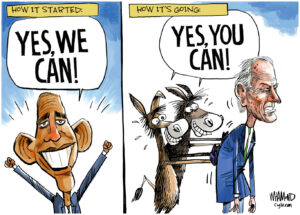The U.S. and Russia Are Wrangling Over the Iraqi Sphere of Influence (Video)
Iraqi Prime Minister Haydar al-Abadi is alleged to be under “enormous pressure” from Shiite militiamen and hard-liners to seek Russian airstrikes on Islamic State (Daesh) targets.
This post originally ran on Truthdig contributor Juan Cole’s website.
Iraqi Prime Minister Haydar al-Abadi is alleged to be under “enormous pressure” from Shiite militiamen and hardliners to seek Russian airstrikes on Daesh (ISIS, ISIL) targets. On Oct. 1, he had announced that such Russian intervention in his country would be welcome.
On Wednesday, the largest bloc in parliament, the Shiite Da’wa Party from which al-Abadi springs, sent a letter to the Prime Minister asking for Russian intervention.
He has established a joint intelligence center in Baghdad where reports are shared among Iraq, Iran, Russia and Syria.
But this week the new chairman of the Joint Chiefs of Staff, Marine Gen. Joseph Dunford, visited Iraq and said he got assurances from PM al-Abadi that Russia would not fly missions against Daesh on Iraqi soil.
He said that there had been “angst” in the Pentagon when al-Abadi mentioned this possibility.
The United States, he said, “can’t have a relationship right now with Russia in the context of Iraq.” Dunford told the reporters accompanying him to Iraq, “I said it would make it very difficult for us to be able to provide the kind of support that you need if the Russians were here conducting operations as well. We can’t conduct operations if the Russians were operating in Iraq right now.”
Since many countries are flying missions against Daesh in Iraq, including Britain, France, Australia, Jordan, Morocco, Belgium, Denmark and the Netherlands, it is a little hard to understand why Russia could not also do so without fear of friendly fire. Is the US in Iraq unwilling to share with Moscow the “identify friend or foe” codes that would keep Russian planes safe from such an attack?
In any case, the Iraqi press and parliament think that Gen. Dunford is being far too categorical in the way he describes Baghdad’s pledge. The Shiite militias, such as the Badr Corps and Asa’ib Ahl al-Haqq, intend to go on lobbying for Russian intervention. And, Parliament will take up the matter later this month.
From the point of view of the Shiite militias and politicians, the US air strikes have been way too leisurely. For the most part they seem to aim at containment of Daesh rather than rollback. The Shiite militias have been watching the extensive air strikes by Russia on rebel targets, with increasing envy. They want that kind of action.
My guess is that the Obama administration hasn’t wanted to roll back Daesh quite yet, precisely because it would be the Badr Corps and similar hard line pro-Iran Shiite militias that would conduct the attack on Mosul. And that configuration would enrage the Sunni Iraqis further. The US is reaching out to Sunni tribal chieftains and wants to delay the taking of Mosul until there are enough such Sunnis and they can be positioned as the leading edge of the attack.
In contrast, the Shiite militias want to go, now.
The US desire to keep Russia out is likely in part a declaration of an old 19th-century style “Sphere of Influence.” Spheres of influence are exclusive. It was one such sphere that drew Britain into WW I. London proclaimed that Belgium was in its sphere of influence. When the German army invaded France through Belgium, that brought Britain into the war. But why?
And this anecdote suggests why the US may be unwise to try to claim Iraq as a sphere of influence in this way.
Your support is crucial…With an uncertain future and a new administration casting doubt on press freedoms, the danger is clear: The truth is at risk.
Now is the time to give. Your tax-deductible support allows us to dig deeper, delivering fearless investigative reporting and analysis that exposes what’s really happening — without compromise.
Stand with our courageous journalists. Donate today to protect a free press, uphold democracy and unearth untold stories.








